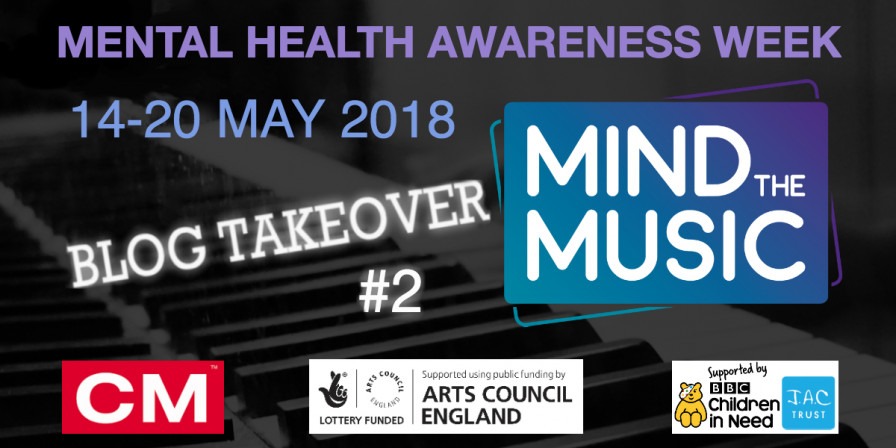Community Music's Mind The Music Blog Takeover #2 - Is Music Good For Us?

Community Music has been running a wide range of music courses for young people and adults for over 30 years. We work with people from diverse backgrounds, who have spent time connecting and expressing themselves through music making whilst at Community Music. While we often see students go on to be very successful in music-related careers, Community Music believes that there are so many more important aspects of music participation that spreads beyond learning to make and play music well.
Playing an instrument or singing has been shown to be a great stress reliever, music making as a group builds new social and cultural relationships, composing music and lyrics can be a way to express emotions and feelings, and performing music can boost feelings of achievement and confidence. Even just listening to music has been scientifically proven to increase dopamine – a feel-good chemical – in our brains.
The Ted video at the start of this article, shows how music making is great for the brain.
It’s clear that music making can do good stuff for us, but for this week of blogs on music and mental health, we wanted to ask previous and current students of Community Music if they’d be willing to share their own experience of music and mental health.
Noni Mouse, a self taught drummer/percussionist/singer completed the Music Leader Training Course at Community Music. Noni has experienced anxiety, depression, low self-esteem and insecurity. Music has helped Noni improve focus, the art of listening, finding rhythm, balance, team building, communication, self-confidence, and self esteem. Noni values the social connections, unification, expression and creativity of music, and finds it has a healing effect, especially in trauma and social exclusion. Through music, Noni has found a desire “to want to explore other avenues and new skills” and music has “reaffirmed rooted passions and dreams to reality” as well as bringing joy and a sense of fun. Having played solo and in bands, Noni is now moving into facilitating fun workshops with youth and people with dementia.
Patrick is a musician who has trained with Community Music to be a music leader. He has had non-clinical depression - lasting up to 6 months at a time - for most of his adult life. Patrick explains “About 10 years ago, I went to a Bobby McFerrin concert. He likes to chat to the audience in-between songs and one thing he said was ‘make music with other people’. At the time I was a DJ and producer - solitary work - so I subsequently joined a choir and also picked up the saxophone (having played flute at school). Singing in a group is the most dynamic way I know to alleviate isolation and my saxophone practise - formal exercises interspersed with improvisation - puts me in touch with myself on a very deep level. Both of these things, alongside my continued yoga practise, maintain my health. Most recently, I was given an enormous amount of support from Help Musicians”.
Big thanks to Patrick and Noni for sharing their story.
Help Musicians are a charity who provides funding, support and advice for musicians. Their Music Minds Matter mental health support line is open 24/7 launched in December 2017. We also highly recommend their Musician’s Hearing Health Scheme – providing heavily discounted bespoke ear protection for musicians.
Our Mental Health Awareness Week Mind The Music Blog takeover continues tomorrow.
--
Mind the Music is Community Music’s new 3 year programme working with music and mental health.
We are providing music sessions for young people who are accessing mental health services in East London. Both 1 to 1 and collaborative sessions are held at Community Music and acute psychiatric wards, facilitating individual expression and group creativity, using vocals, instruments, songwriting and music production.
Mind the Music is funded by the JA Clarke Trust and Children in Need.
--
Mental Health Support
For further information on mental health support services, visit the Mind website.
